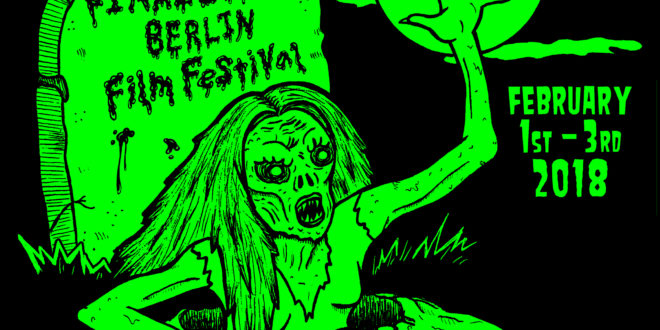After watching this catchy little teaser for Natasha Austin Green’s horror short Dead. Tissue. Love., I decided to review the project for this year’s Final Girls Berlin Film Festival. Watch the video and you will see what I mean.
https://vimeo.com/225867619
Dead. Tissue. Love. was written and directed by Natasha Austin Green (At The End of the Tunnel 2017) and produced by Joe Argent (Addy 2017), shot by cinematographer Bradley Graham (I Against I 2012) and edited by Tom Windsor. Models Antonia Purdie, Murron McDermid and Katya Alonikovskaya were used in filming the short’s seemingly non-sequitur shots. Tyrant’s (2016) Afsaneh Dehrouyeh narrated this ten minute film.
The film’s official synopsis:
Dead. Tissue. Love. is an experimental documentary profiling the individual character of a female necrophile as she journeys and explores her life experiences, sexual awakening and how she addresses her sexuality, whilst hiding it from a society that had put a demonized face on a human figure.

Says to Natasha Austin Green:
It all really started from the first film I made called At The End Of The Tunnel, which brought into question the taboo around menstruation and how this taboo had affected myself and the relationship I’ve had with my own body, but also the women around me. By making this film, I became fascinated with hearing from the perspective of people at the forefront of these societal constructs.
Dead. Tissue. Love. was the next step in pulling down the veil to the individuals whom society seems to demonize before understanding or even trying to have any understanding of them. I would say both the films I have made so far are in a series together, as the inspiration relates to my own experiences. Take Dead. Tissue. Love. for example. The pondering I had before making the film came from me recalling my own experience of confusion around my sexuality and the difficultly I had in coming to terms with it. So this train of memory blossomed questions in my mind of, “I wonder how immense the loneliness and isolation would be if a person’s sexuality was deemed to be repugnant and grotesque by society? And how heavy and weighty that burdening secret would be? Who could a person possibly share that secret with?” I starting then attaching these questions I had with necrophilia, a topic, if brought up, normally stunts the conversation and make people rather uncomfortable to say the least.
However, this isn’t the last film in the series. I plan to make two short films, but my next is a feature length poetic observational character documentary celebrating the creativity and power of the human mind through the exploration of Dissociative Identity Disorder.

During this ten minute long short, a woman (Afsaneh Dehrouyeh) explains in voice over her trouble finding understanding for her sexual proclivity, an identity that society has identified as extremely deviant – necrophilia, the desire to have sex with dead people. The narrator realizes that this is not something that people will understand, but her desire overpowers her need to fit in. This narration takes place at the beginning of her journey, before she’s made any attempt to give in to her urges. The viewer is left in the dark as to where she chooses to go, although it’s clear that she feels no need to try and curb her longing.
The narration plays over black and white images of a body, both inside and out. It starts with the tiniest cells and eventually expands to perfectly still, full body shots. As the narrator continues, the viewer realizes that the person being photographed may or may not be alive.
On the surface, Dead. Tissue. Love. seems like a movie that can’t decide what it wants to be. Seemingly riding the fence between obscure arthouse film and simplistic shocker, it seems as though Austin Green only wants to provoke a knee jerk startle response out of her viewer. However, upon closer inspection, one can see the actual depth of the film. Although living with the desire to sleep with dead people may seem outrageous and unrelatable, many can connect with the desire to do things outside of social norms and the burden of living with a secret that would astound or disgust even the closest family and friends. I applaud Austin Green for taking this step with her film and I eagerly await her next installment in her series.
 PopHorror Let's Get Scared
PopHorror Let's Get Scared




